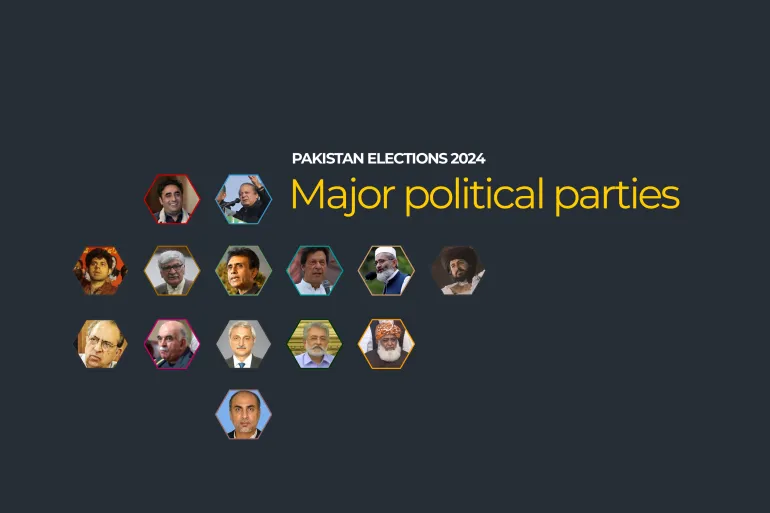
In the aftermath of the 2024 General Elections in Pakistan, the country finds itself at a crossroads, where the path towards reconciliation among political parties emerges as not just a choice but a necessity. The elections have painted a complex picture of Pakistan’s political landscape, with independent candidates, many affiliated with Former Prime Minster Imran Khan’s PTI, capturing a significant number of seats along with Former Prime Minister Nawaz Sharif’s party PMLN and Former President Asif Zardari’s party PPP leading the front.
Pakistan’s Election outcome, underscores a fragmented yet vibrant democratic process, reflecting a diverse range of public opinion and political allegiance.
This diversity in electoral outcomes signals a clear message from the Pakistani electorate: a desire for their leaders to transcend traditional rivalries and partisan lines in favor of forming a Government that can effectively address the nation’s pressing challenges. The need for reconciliation among all political entities is not just a matter of political expediency; it is a direct reflection of the public’s will—a call for unity in the face of adversity.
The unfolding of political scenario requires political parties to navigate a landscape, where no single party holds absolute power. This situation necessitates dialogue, compromise, and ultimately, collaboration among all political factions. The formation of a Coalition Government, as evidenced by the meeting of leaders from six major political parties, including the PPP, PMLN, and others, is a step towards right direction. Their commitment to work together to ‘steer Pakistan out of its current crisis‘ is a testament to the recognition of the collective responsibility, they bear towards the nation and the state.
Read More: Pakistan’s Elections Debate
The significance of forming a unified Government goes beyond mere political stability. It is about crafting a governance model that is inclusive, representative, and capable of undertaking the reforms needed to address Pakistan’s economic challenges, ensure social welfare, and enhance public services. This collaborative approach is the only viable path forward to leverage the diverse strengths and perspectives within the political spectrum for the common good.
The process of reconciliation is also fundamental to the integrity of Pakistan’s democratic institutions. It serves as a mechanism for healing after a contentious political period, marked with allegations of irregularities and public protests. By coming together, political parties can restore public faith in the electoral process and strengthen democracy by setting a precedent for constructive political engagement and consensus-building.
Read More: Democracy Prevails: Pakistan Polls 2024
The call by PPP for participation of PTI-backed independents in the Government formation process could be instrumental in bridging divides and ensuring a broad-based Government that reflects a wide array of public sentiments and priorities.
Engaging with all stakeholders, including those with differing viewpoints remain is crucial in fostering a political climate, where diverse voices are heard and considered in national decision-making.
The economic ramifications of political instability are profound. Investors and markets thrive on predictability and stability. By uniting to form a Government, Pakistan’s political leaders can send a strong signal to both domestic and international observers that the country is committed to moving forward with a coherent economic agenda. This unity can help attract investment, spur economic growth, and tackle the significant challenges of unemployment and inflation, thereby improving the lives of millions of Pakistanis.
In this context, the role of civil society and the media in facilitating dialogue and understanding cannot be overstated. Media as an element of national power should encourage transparency, hold leaders accountable, and promote an informed public discourse that values reconciliation and collective action over divisiveness.
The aftermath of the 2024 General Elections presents Pakistan with an opportunity to redefine its political landscape through reconciliation and unity. The formation of a Government that embodies the diverse aspirations and needs of the Pakistani people is not just beneficial; it is imperative.
Read More: Pakistan Elections 2024: Beyond a Level Playing Field
As political parties navigate this crucial juncture, the guiding principle should be the welfare of the nation, transcending beyond mere political gains. Through collaborative efforts, Pakistan can harness its full potential, ensuring stability, prosperity, and a brighter future for all its citizens. This moment in history is a call to action for Pakistan’s leaders to embody the maturity, vision, and inclusivity that the moment demands. It is time for all parties to come together, for in unity lies the strength to overcome challenges and usher in an era of sustained peace and development.


















Leave a Reply